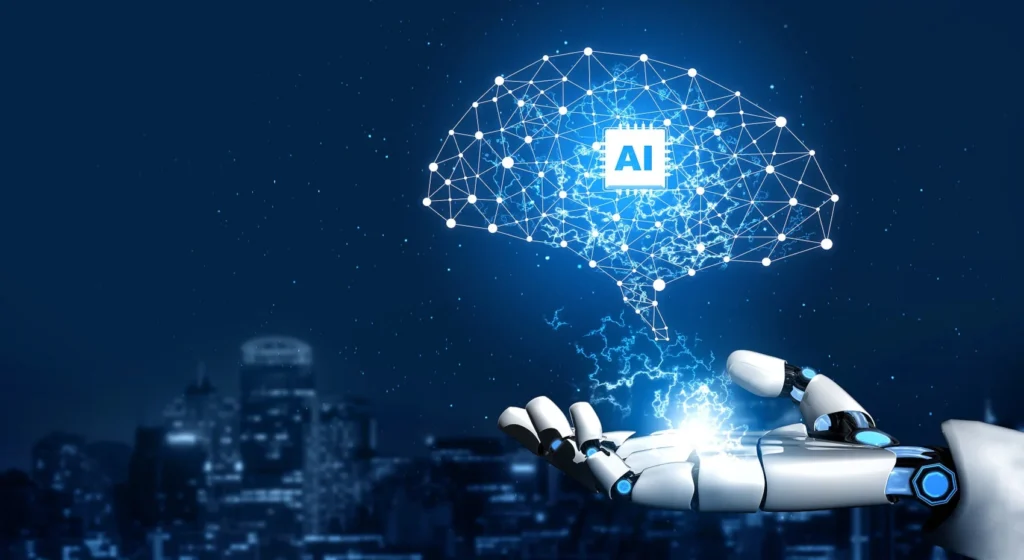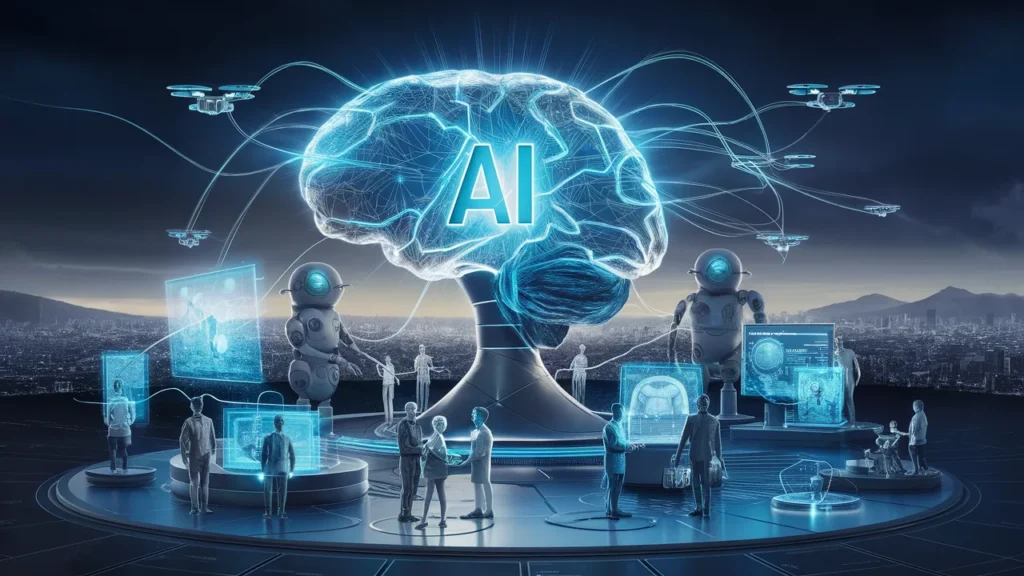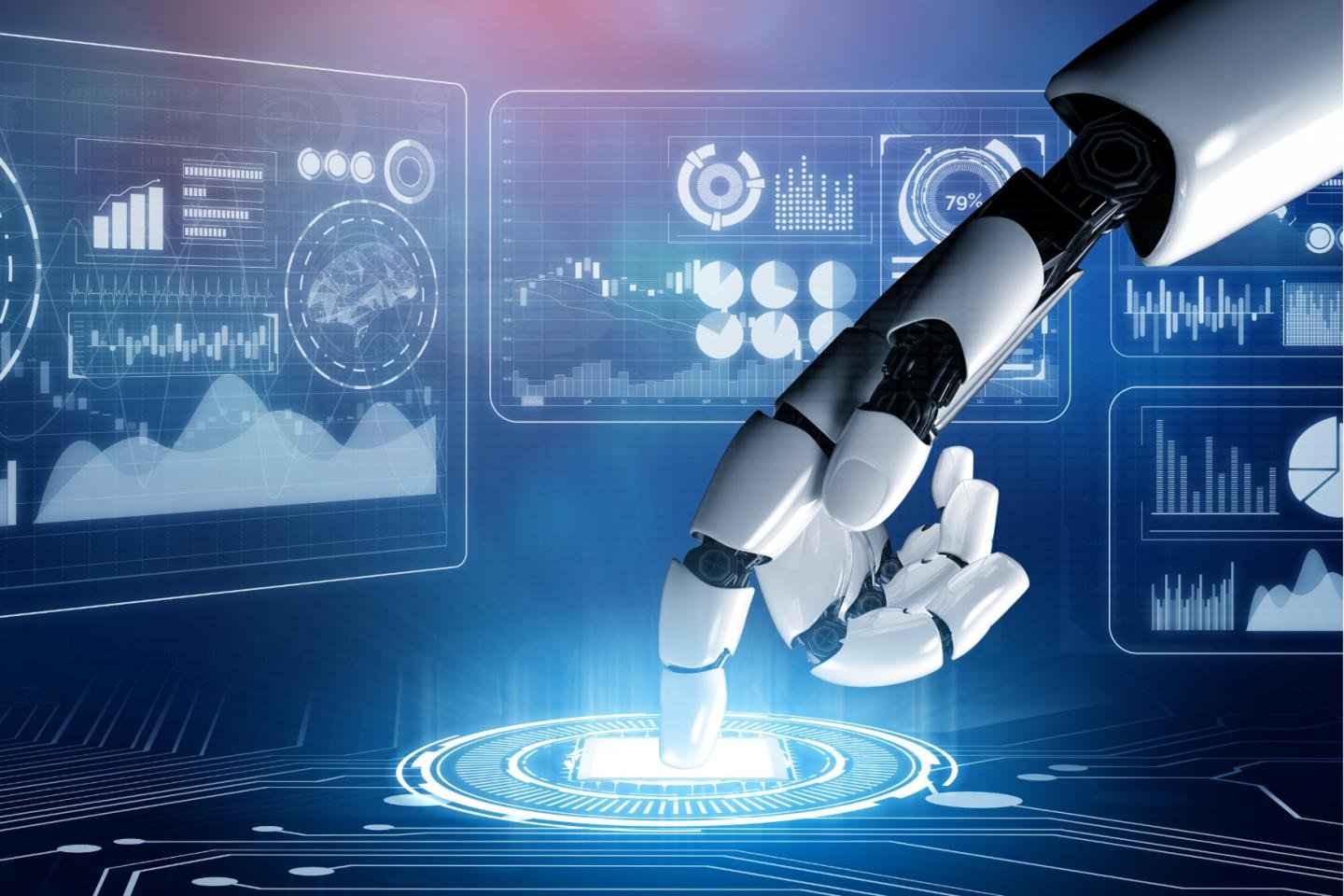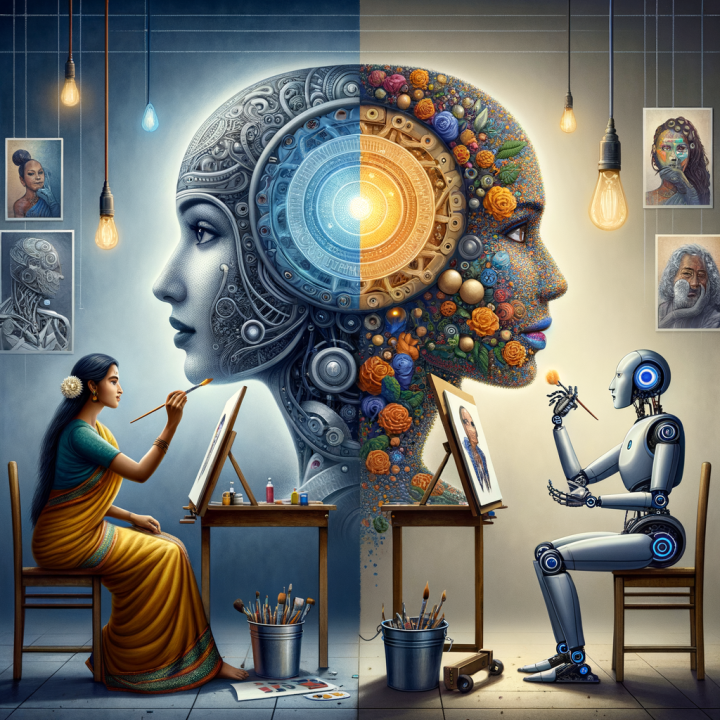AI and Its Impact on Society: A Double Edged Sword
Introduction
Artificial intelligence (AI) has rapidly evolved from a concept confined to science fiction to a tangible reality shaping our world. From powering our smartphones to driving cars, AI’s influence is undeniable. But as this technology advances, it raises profound questions about its impact. Will AI usher in a new era of innovation, or will it create unforeseen challenges? The potential to revolutionize industries, improve our lives, and solve complex problems is immense. However, the rise of AI also raises significant concerns about job displacement, privacy violations, and the risk of autonomous weapons.

The Benefits of AI
- Enhanced Efficiency and Productivity: AI-powered systems can automate repetitive tasks, freeing up human workers to focus on more complex and creative endeavors. This can lead to increased efficiency and productivity across various industries, from manufacturing to healthcare. For example, AI-powered robots are being used in factories to perform tasks with greater precision and speed than human workers.
- Improved Decision Making: AI algorithms can analyze vast amounts of data to identify patterns and trends that humans might miss. This can help organizations make more informed decisions and optimize their operations. For instance, AI is being used in healthcare to analyze medical images and identify potential diseases earlier than traditional methods.
- Advancements in Healthcare: AI is being used to develop new diagnostic tools, personalized treatment plans, and drug discovery methods. This has the potential to improve patient outcomes and revolutionize healthcare. For example, AI-powered systems are being used to analyze genetic data and develop personalized cancer treatments.
- Education and Research: AI-powered tools can personalize learning experiences for students, making education more effective and accessible. Additionally, AI can assist researchers in analyzing complex data sets, accelerating scientific discovery. For instance, AI is being used to analyze climate data and develop new models for predicting climate change.
- Accessibility and Inclusion: AI can help to break down barriers for people with disabilities. For example, AI-powered speech recognition and image recognition technologies can make information and services more accessible to individuals with visual or hearing impairments. For instance, AI-powered voice assistants can help people with disabilities to control their devices and access information.
The Drawbacks of AI
- Job Displacement: As AI becomes more capable, there is a growing concern that it could lead to job displacement. Automation could eliminate certain jobs, particularly those involving repetitive tasks. Specific industries, such as manufacturing and customer service, are already feeling the effects. However, it is also important to note that AI can create new jobs and industries. The challenge will be managing this transition and ensuring that workers have the skills needed for the jobs of tomorrow.
- Privacy Concerns: AI systems often rely on large amounts of data to function effectively. This raises concerns about privacy and data security. There is a risk that AI could be used to collect and analyze personal data without individuals’ consent, leading to privacy violations and discrimination. In a world where data is currency, how do we protect individual rights?
- Bias and Discrimination: AI systems can perpetuate biases present in the data they are trained on. This can lead to discrimination against certain groups of people, such as racial or ethnic minorities. High-profile examples of AI bias in areas like hiring, law enforcement, and lending have sparked debates about fairness and accountability.
- Autonomous Weapons: The development of autonomous weapons raises ethical concerns. There is a risk that these weapons could fall into the wrong hands and be used to cause harm. As AI becomes more advanced, the line between defensive and offensive technologies blurs, raising critical ethical questions.
- Lack of Transparency and Accountability: AI algorithms can be complex and difficult to understand. This lack of transparency can make it difficult to hold AI systems accountable for their actions. Ensuring that AI decisions are explainable and fair is essential for maintaining public trust.

Mitigating the Risks
To ensure that AI is developed and used responsibly, it is essential to address the potential drawbacks and mitigate the risks. The future of AI is shaped by our choices today. Some strategies for doing so include:
- Ethical Guidelines: Developing and adhering to ethical guidelines for AI development and use, ensuring that AI aligns with human values.
- Data Privacy Regulations: Enacting and enforcing strong data privacy regulations to protect individuals’ personal information in an increasingly data-driven world.
- Diversity and Inclusion: Ensuring that AI development teams are diverse to avoid biases in the algorithms and promote fairness.
- Transparency and Explainability: Developing AI systems that are transparent and explainable, making it easier to understand how they make decisions and ensuring accountability.
- International Cooperation: Establishing international cooperation to address global challenges related to AI, such as the development of autonomous weapons and managing AI’s impact on jobs.
Conclusion
AI has the potential to transform society in profound ways. The promise of AI is as vast as the challenges it presents. By addressing the potential drawbacks and mitigating the risks, we can harness the power of AI for the benefit of humanity. The future of AI is in our hands, and by steering its development wisely, we can ensure that this powerful tool serves humanity’s highest aspirations rather than its fears.
Engaging Questions for Readers
- What are your biggest concerns about the development and use of AI?
- Given the potential for job displacement, what role should governments play in managing the transition to an AI-driven economy?
- Do you believe that the benefits of AI outweigh the risks?
- What steps can be taken to ensure that AI is developed and used ethically?
- How can we prepare for the potential job displacement caused by AI?
- What do you see as the most promising applications of AI in the future?
Case Studies
- Self-driving cars: Discuss the potential benefits and risks of self-driving cars, including accidents, job displacement, and ethical dilemmas.
- AI in healthcare: Explore the ways in which AI is being used to improve healthcare, such as diagnosing diseases and developing personalized treatment plans.
- AI in finance: Discuss the use of AI in financial services, including fraud detection, algorithmic trading, and customer service.
Future Outlook
- Speculate on potential future developments in AI, such as artificial general intelligence (AGI) and superintelligence.
- Discuss the implications of these developments for society, including the potential for job displacement, economic disruption, and existential risk.
for more visit Tech






